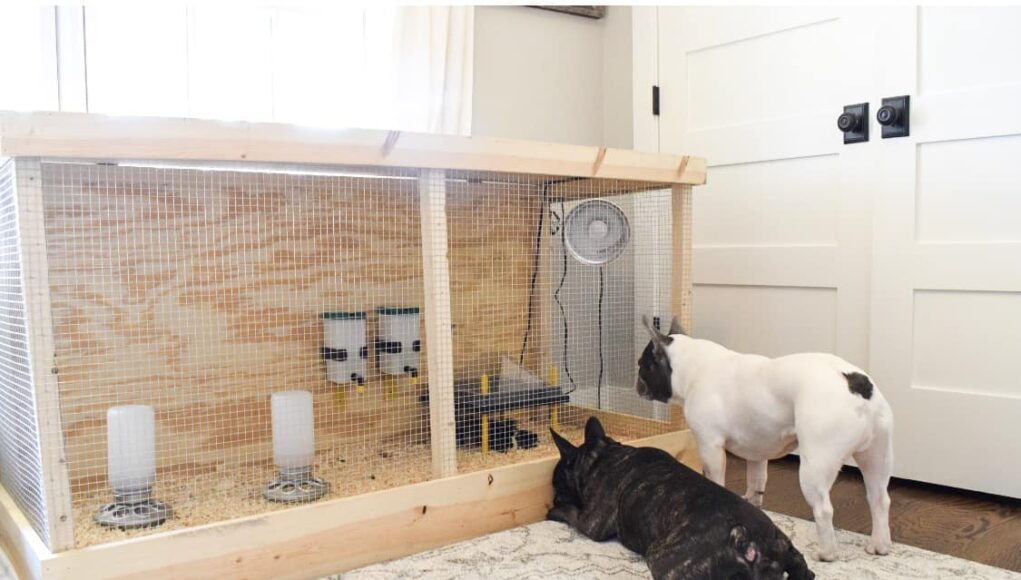Raising chicks is a rewarding yet challenging experience, and knowing how to feed chicks in brooder is one of the most crucial aspects of ensuring their healthy growth. In this guide, we will explore the essential steps and tips to keep your chicks healthy and thriving from their first days in the brooder. Understanding the intricacies of feeding these young birds lays the foundation for a strong and healthy flock.

Understanding Chick Nutritional Needs
When it comes to feeding chicks, it’s important to understand their unique nutritional needs. Chicks require a balanced diet to support their rapid growth and development. Protein, vitamins, and minerals are vital components of their diet.
Protein Requirements
Protein is essential for the growth and development of chicks. A high-quality chick starter feed usually contains around 18-20% protein, which is crucial in the early stages of a chick’s life.
Vitamins and Minerals
Chicks need a variety of vitamins and minerals, including calcium, phosphorus, and vitamins A, D, and E. These nutrients help in bone development and overall health. A well-formulated feed will contain the necessary vitamins and minerals to support their growth.
Choosing the Right Feed
Selecting the appropriate feed is critical when learning how to feed chicks in brooder. The type of feed will depend on the age and breed of the chicks.
Starter Feed
For the first six weeks, chicks should be given a starter feed. It’s designed to provide the essential nutrients that young chicks need for optimal growth. Look for a feed that is labeled as starter or starter-grower.
Organic vs. Non-Organic Feed
Organic feeds are free from synthetic additives and are made from non-GMO ingredients. While they can be more expensive, many poultry keepers prefer organic feed for its perceived health benefits.
Feeding Schedule and Portion Control
Establishing a proper feeding schedule is key to raising healthy chicks. Chicks should have constant access to fresh feed and clean water.
Free Feeding
Chicks should be allowed to eat as much as they want. Free feeding ensures that they get enough nutrients to support their rapid growth and development.
Monitoring Feed Intake
Keep an eye on how much feed your chicks are consuming. Adjust the amount accordingly to ensure there is no wastage while still meeting their nutritional needs.
Water: An Essential Component
Along with feed, water is an essential component of a chick’s diet. Fresh, clean water should be available at all times to prevent dehydration and promote healthy digestion.
Water Quality
Ensure that the water is clean and free from contaminants. Change the water daily or more frequently if it becomes soiled.
Electrolyte Solutions
During hot weather or when chicks are stressed, adding an electrolyte solution to their water can help keep them hydrated and healthy.
Common Feeding Mistakes to Avoid
There are several common mistakes that beginners often make when feeding chicks. Avoiding these can help ensure the health and well-being of your flock.
Overfeeding
While chicks should have constant access to feed, it’s important not to overfeed them. Too much feed can lead to obesity and other health problems.
Incorrect Feed Type
Make sure you’re providing the correct type of feed for the age and breed of your chicks. Starter feed is essential in the early weeks, while grower feed is suitable as they mature.
Creating a Safe Feeding Environment
The environment in which your chicks eat is just as important as the feed itself. A safe, clean, and comfortable brooder is essential for their well-being.
Brooder Setup
Ensure that the brooder is set up correctly with a proper heat source, such as a heat lamp or eco-friendly chick brooder, and clean bedding like paper towels. This will keep the chicks warm and safe.
For more detailed insights on brooder setups, check out small brooder design and eco-friendly brooder.
Hygiene and Cleanliness
Regularly clean the brooder to prevent the spread of diseases. This includes changing the bedding and cleaning the feeders and waterers.
FAQs
What type of feed is best for chicks in a brooder?
Chicks should be fed a high-quality starter feed that contains 18-20% protein to support their growth.
How often should I change the water in the brooder?
Water should be changed daily or more frequently if it becomes soiled to ensure it remains clean and fresh.
Can I give my chicks treats?
Yes, but in moderation. Treats should not exceed 10% of their total diet and should be suitable for chicks.

Conclusion
Knowing how to feed chicks in brooder is crucial for their healthy development. By providing a balanced diet, maintaining cleanliness, and ensuring a safe environment, you can raise robust and thriving chicks. For more in-depth information, you can explore resources like Backyard Chickens which offer extensive insights into chick rearing.
This article contains affiliate links. We may earn a commission at no extra cost to you.











